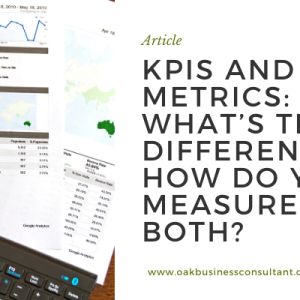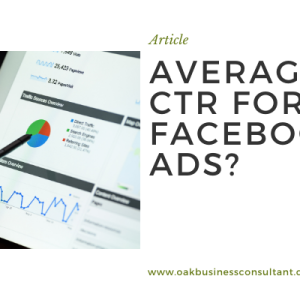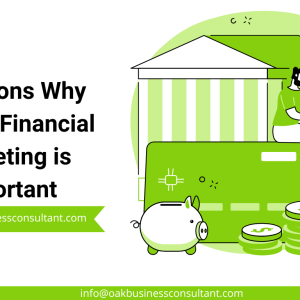CEO Vs CFO Meaning: What’s The Difference?
CEO Vs CFO Meaning: Understanding the Difference
Introduction:
As you go about running a business, the hierarchy matters a lot. Positions need to be defined so that job responsibilities are clear. To do so, you need to ensure that you have all the right people working in the business. Two of the key positions in the hierarchy include those of the CEO and the CFO. But what do the CEO and CFO mean when it comes to businesses?
Here, we will help you understand how the two positions work in a business and how they are different yet essential to every business. Stay tuned as we go about trying to find all the possible differences between the CEO and CFO.
What Is a CEO?
A chief executive officer (CEO) is the highest-ranking executive in a company, responsible for major corporate decisions, overall operations, and acting as the main liaison between the board and operations. The CEO sets strategic goals, oversees financial performance, and works closely with other executive leaders to drive company growth.
In the high-stakes world of business, the CEO reigns supreme. The chief operating officer works closely with the CEO to ensure efficient operations at a high level. As the Chief Executive Officer (CEO), they hold the highest rank within the executive leadership team and serve as the very face of the company. While the CEO holds the top spot, they don’t operate in a silo. They work closely with other C-suite officers, like the CFO, to ensure all aspects of the business run smoothly and achieve long-term goals.
The CEO’s meaning is quite simple, as it’s the person in charge of the entire organization. The chief executive officer (CEO) is the highest-ranking official in a company, often regarded as the face of the company. The Chief Executive Officer surely has a ring to it and holds a lot of power as well. The CEO signs off most of the end decisions made in a business. So, it is pretty clear as to how valuable a CEO is. The board of directors should take sufficient consideration before selecting one.
You might be thinking about how the board of directors fits in here. Well, in the case of a large-scale organization, some shareholders choose who the CEO will be. A startup might not have the same scenario. Either way, the CEO has a lot of responsibilities that they have to look after.
What Is a CFO?
A chief financial officer (CFO) manages a company’s financial actions, including planning, risk management, record-keeping, and financial reporting. The CFO analyzes financial strengths and weaknesses, develops improvement strategies, and ensures regulatory compliance. They work closely with the CEO to align financial goals with the company’s strategic objectives, driving sustainable growth and profitability.
To understand who the CFO is, you need to know the CFO’s meaning. So, let’s take a look at it. CFO’s meaning is the Chief Financial Officer. Doesn’t this make things simpler to understand? CFOs are there to assist in all sorts of financial decisions that go on in a business. They have a highly relevant and essential position as they manage the most important aspects of a business.
So, when we talk about creating financial budgets, operations, or reporting, the CFO has all the power. But is the CFO’s meaning similar to that of the CEO? Not at all. The two are extremely different, even though you might feel like they sound the same.
Which Of The Above Holds More Power?
Now, when it comes to who holds the most power, you should know this is where the CEO comes in. We’re not saying the CFOs don’t hold any power. Instead, the CFO’s power is a subset of the CEO’s powers.
So, the Chief Financial Officer (CFO) will ideally be reporting to the CEO for all finance-related matters. It can include the financial statements, budget, and everything else that comes under the CFO’s authority.
According To The CEO Meaning, What Does The CEO Do?
Let’s put down a list of all the things the CEO is required to do. It will give you a rough estimate as to where their powers start and where they end.
- Making corporate decisions
- Managing operations and resources
- Communicating with the board of directors
- Reaching out to investors
This list is just a broad perspective of what the CEO job description includes. You can extend this list to a very long one to add more details to what exactly a CEO does.
According To The CFO Meaning, What Does The CFO Do?
Now, let’s get to what the CFO does or what the CFO’s meaning is. Here, let’s list down the major chunk of what a CFO’s responsibilities are when running a business.
- Financial planning
- Performing risk management
- Analysis of liabilities and investments
- Preparing investment strategies
- Creating financial models
Here, you can tell there are many responsibilities related solely to financial aspects. The CFO is required to work through various aspects that all relate to the finances of the business. They’re highly important, which is why hiring a Chief Financial Officer (CFO) is a highly critical task for any business.
Difference Between The CEO And The CFO
While we have differentiated between their everyday tasks, we’re going to get into more detail about what the CEO and CFO meaning truly represent. Executive leadership, including the CEO and COO, play crucial roles in strategic decision-making and raising funds. You’ll find differentiation of both the positions and understand how using them interchangeably is not the right way. The CFO’s meaning is highly different than the CEO’s, so before any further ado, let’s start distinguishing between the two.
Responsibility
In the realm of corporate leadership, the CEO is tasked with the overarching responsibility of guiding the entire organization. This includes formulating and implementing strategies that are pivotal for business success. The CEO’s role extends beyond mere management, encompassing the creation of visions and pathways that propel the company forward.
Conversely, the CFO’s responsibility is more specialized, focusing on leading the finance department. Their role is instrumental in supporting the CEO’s strategies by crafting financial plans and ensuring these strategies are financially viable, thereby safeguarding the company’s fiscal health.
Scope
The scope of duties between a CEO and a CFO underscores their distinct roles. The CEO operates with a broader perspective, managing the day-to-day operations and external affairs of the business. This comprehensive scope requires them to engage in public relations, make significant business decisions, and oversee the company’s overall performance.
The CFO, however, has a narrower yet deeply crucial scope, concentrating on all financial matters of the company. This includes the meticulous management of financial reporting, the oversight of financial operations, and the strategic planning of the company’s financial future.
Evaluation
Evaluation criteria for these roles differ significantly. The CEO assesses the business from a holistic viewpoint, evaluating risks and opportunities that affect the company’s strategic direction and operational efficacy. Their evaluation encompasses a wide array of factors beyond financial metrics, including market trends, competitive positioning, and company performance.
In contrast, the CFO’s evaluation is primarily focused on financial risks and gains. Their analysis is crucial for informed decision-making, providing the CEO with the financial insights needed to steer the company wisely.
Accountability
Accountability also varies between the two roles. The CEO, as the leader of the entire organization, holds ultimate accountability for the company’s success, operational integrity, and strategic direction. This extensive accountability encompasses the outcomes of decisions made across all departments and initiatives.
The CFO’s accountability is more specific and centered around the company’s financial planning and reporting. They are responsible for ensuring that the financial strategies and operations align with the CEO’s vision and the company’s overarching goals.
Background Relevance
The background and pathway to becoming a CEO versus a CFO illustrate further differences. A CEO can emerge from various disciplines, reflecting the diverse skill set required for the role. Leadership qualities, strategic thinking, and superior communication skills are paramount, regardless of one’s academic background.
The CFO’s role, however, necessitates a strong foundation in financial management and accounting. A deep understanding of financial institutions, financial reporting, and the intricacies of financial operations is essential, highlighting the need for specialized expertise in this area.
Frequently Asked Questions:
Do CFOs make good CEOs?
-Yes, CFOs can become effective CEOs due to their financial expertise and strategic insight.
Is the CEO the owner of the company?
-No, the CEO is the top executive appointed to lead the company, not necessarily its owner.
Conclusion
Understanding the unique roles of the CEO and CFO is essential for a company’s success, as it ensures strategic and financial facets are well-managed, guiding the business toward its long-term ambitions. These C-suite positions are vital for driving the company’s long-term growth and success.
Oak Business Consultant specializes in CFO services that bolster your financial strategy and management, enhancing your ability to tackle financial challenges and seize opportunities. Boost your financial strategy with Oak Business Consultant. Discover how our CFO services can align your financial practices with your strategic objectives, paving your way to success in today’s competitive market. Visit us now to get a free consultation.


























